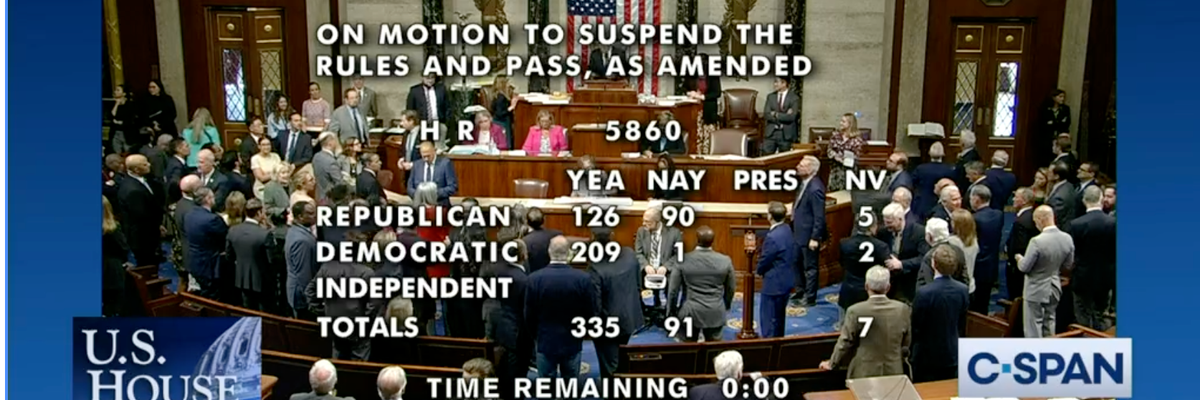House and Senate supporters of continuing Ukraine aid were seething yesterday but left little choice but to leave a vote for a new multi-billion dollar war package for another day.
After a spirited debate on the House floor Saturday, the chamber voted 335-91 for a "clean" stop gap measure without Ukraine aid that would continue funding the government for another 45 days. It then sent it along to the Senate, which had already passed its own bill, but with $6 billion in new funding for Kyiv.
With hours to spare the Senate did not take up the fight and approved the House measure. Majority Leader Chuck Schumer and Minority Leader Mitch McConnell then issued a joint statement vowing to use the time to put the money for weapons and non-military aid back on the table in the coming weeks.
The votes reflect growing backlash, all in Republican ranks, against what they say is a "blank check" for Ukraine as it pursues its war against the 2022 Russian invasion. The U.S. allocated $113 billion in 2022 to Ukraine, more than $40 billion in which went to war-related assistance. Among the reasons, critics say the conflict has slid into a grinding war of attrition and little is being done to shift away from daily bloodletting and towards a negotiated settlement before Ukraine is destroyed. Others say the money is best spent at home, or on other military challenges, like China.
Democratic supporters of Kyiv lashed out on Twitter Saturday, suggesting Republicans were pursing an agenda on behalf of Russian President Vladimir Putin and needed to be stopped. "We have to stop being naive about what is happening right now in Washington," charged Simon Rosenberg, longtime Democratic strategist. "There is an a (sic) Russian-aligned American Fifth Column working to undermine the United States and our war effort in Ukraine."
- Freedom Caucus won’t support Ukraine ‘blank check.’ What's that mean? ›
- Ukraine aid fight is central to government shutdown debate ›
















